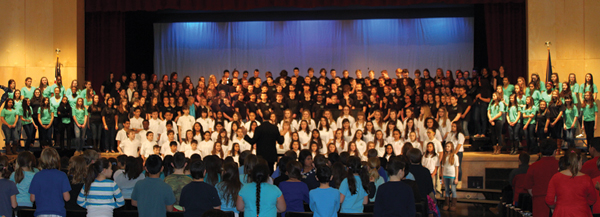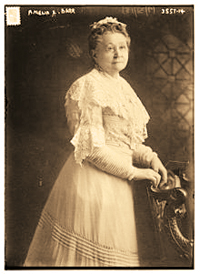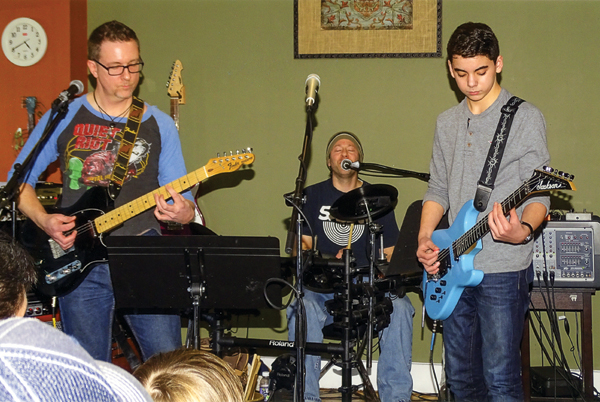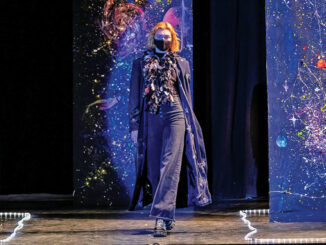
On Wednesday, over 700 students in grades 4-12 gathered for the sixth biennial choral workshop held in the Cornwall High School auditorium. After each vocal group met with the other music teachers in the district, ensembles performed individual pieces for each other, then partnered for one final musical number.
The program was started in 2007 by high school choral director Anthony Ravinsky as a learning experience for the students, and it quickly grew in terms of the number of participants. Over the years, the program has allowed students to grow artistically while it serves as professional development for the teachers.
Students began arriving at the high school between 8:30 and 9 a.m. and the workshop began soon thereafter. The 12 ensembles from the high school, middle school, and three elementary schools broke off for the exchange of choral directors for rehearsal sessions, in order to reinforce and expand vocal skills. They spent about an hour working on their song and learning new warm-ups and techniques.
Participating music teachers included Karen Snider, Kelly Van Demark, Lisa Moriarty, Barbara Horne, and Ravinsky.
“In the beginning teachers go to different groups and we get to work with different students at different levels,” Ravinsky said. “It’s very humbling for me to get to work with all the fourth graders in the district and do some fun warm-ups and sing through some songs they all know.”
Brynne Growney, a Cornwall High School senior, is a member of the mixed chorus and concert choir, and has participated in the workshop five times. She describes it as a “meeting of the voices.” Each chorus learns a song to perform for the other groups, as well as a song all the students learned to sing together at the end. This year’s selection was “All Join Hands.”
“This experience has helped me develop vocally by showing me where I want to be and pushing me to work for it,” Growney said. “Being able to work with different teachers gives you new perspectives on things. Everyone has different strengths and things that they have an ear for, so by switching teachers, groups can hear not just a second opinion, but possibly improve with little tweaks that their conductor maybe hadn’t noticed themselves.”
Ravinsky said he enjoys working with the younger children because it requires a different approach. His expectations remain high, but he knows he has to slow down and explain things in more detail. The warm-ups and strategies are different because the younger voices haven’t started to change.
For the high school students, some were seeing the other music teachers for the first time, while the rest remembered the teachers from their elementary or middle school days.
“It’s nice to have a different perspective,” Ravinsky said. “When my kids do festivals and work with other teachers, it’s a good opportunity seeing how to do something differently to get the same outcome.”
Due to the number of students involved, they could only perform for each other as there was not enough room in the auditorium for the rest of the student body.
“It’s a very important humanitarian experience as it is a musical experience,” Snider said of the benefits of the workshop. “It’s a great experience for them to appreciate the arts as an active learner and listener.”



